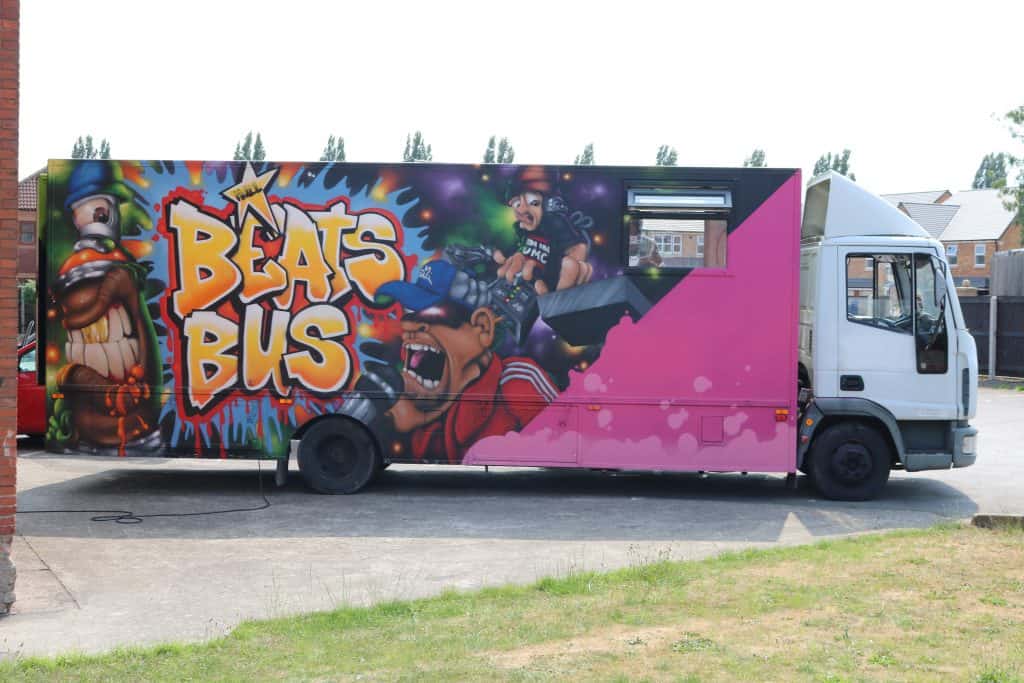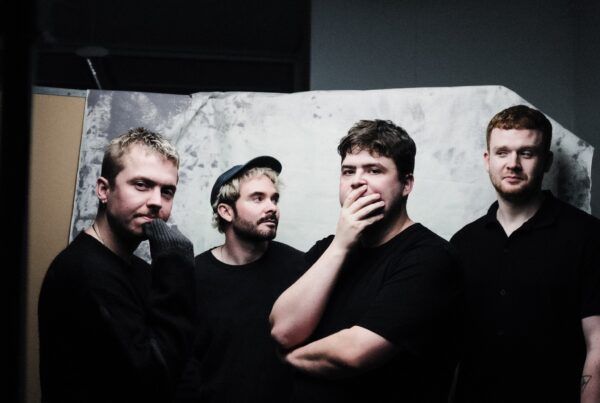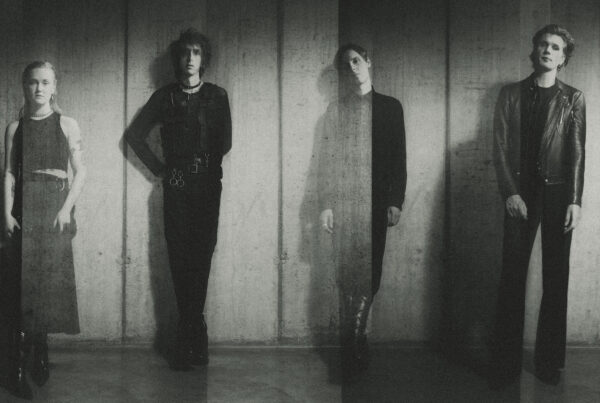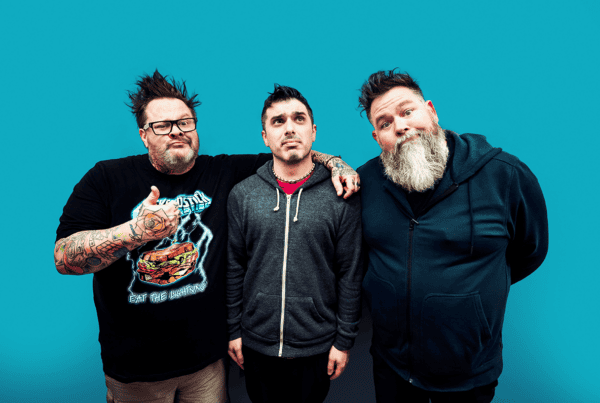Hull-born filmmaker Sean McCallister has always kept a firm grip on his roots: he has seen it rise from a slumped port to the City of Culture. His documentary ‘A Northern Soul’ was a candid, and rightfully raw portrait of the struggle of the working-class to strive for social mobility and opportunity.
Steve Arnott was the anchor of the documentary; despite earning a low wage as a warehouse operative and having a family to support, Arnott took his love of hip-hop and brought it to deprived areas of Hull as a travelling workshop to kids who otherwise would be overlooked. We spoke to Arnott in the afterglow of ‘A Northern Soul’ to find out what’s next for the hip-hop artist, as well as the future he has mapped out for the “Beats Bus” in 2019.
Steve can trace back his love of hip-hop to when he was ten-years old, which planted the seed that would one day grow into Beats Bus. “I was walking to school one day, and I saw this kid put a piece of cardboard down in the street. I stopped and thought, ‘What’s this guy doing?’, then he brought a tape player out and started playing tunes and started doing spins and breakdancing. I just went up to him and asked, ‘What are you doing?’. I wasn’t usually one to speak out because of bullying at school, so I was usually quiet and reserved, but I was so interested in what he was doing that I didn’t think twice to ask. He introduced me to hip-hop that day: ‘This is a windmill; this is a backspin’ – he showed me the moves. It was the breakdancing, really, that got me into the music.”
The first workshops Steve did were for The Warren, a charity with a mission that the Beats Bus would later adopt for itself. The Warren Youth Project, for thirty-two years, has been creating powerful and exciting experiences to open windows of opportunity for disadvantaged young people. “Every workshop I put on with The Warren was really successful”, Steve says. “I started to wonder why more people weren’t coming to them. Then I realised: it’s money. Families can’t afford for their kids to travel to these city centres every day, and that’s where the mobile recording studio idea came from, so that we could take it down to estates and come to them rather than putting the burden on them to come to us.”

Until 2017, when Hull was given the title of City of Culture, it was seen by the country as a city coloured grey: a graveyard for opportunity. The reality was ignored, and quite different. Hull has risen to have one of the greatest reputations as a hive of culture, inspiration and diversity. “The mentality is really great in Hull,” Steve tells us. “It’s very united, which is what hip-hop is really all about. It’s about doing this together and finding an alternative to violence. I think the people: the people bring you back every time. I moved out of Hull for about seven years because my friend passed away – it was quite hard for me to deal with that while I was here so I had to move – but after about five or six years I just wanted to come back. Something just pulls you back.”
After Steve met with documentarian Sean McCallister after being introduced by a mutual friend, over drinks they discovered they had more in common than they first thought. ‘A Northern Soul’ was an instant success, met with overwhelming critical acclaim all the way from Hull to the offices of The Guardian. “It has been incredibly overwhelming for a guy who just had a normal 9-5 job. I think the documentary made me realised how strong I am. It also made me realise you can achieve whatever you want, as long as you work hard enough and want it badly.”
The success couldn’t have come at a better time. “In 2017 I got divorced and demoted.” He says. “In the office I was the blue-eyed boy, Beats Bus this, Beats Bus that. There was quite a bit of jealousy and bitterness going on. Sean was a big inspiration. When I was really low, he was pushing we forward and keeping me going. I think working with the kids has taught me how to be positive; they can’t see me be negative because it would have a detrimental effect on everything I’ve worked for and what I’m trying to achieve with Beats Bus. I had an excellent support network around me who would pick me straight back up.”
The documentary encouraged Steve to take the plunge and pursue the Beats Bus full-time. “It has been a big risk,” he explains. “I have to support my family. It was quite a big jump, but the documentary was just amazing. We’ve been given so much funding for the Beats Bus which has given kids a purpose.”
Steve’s aims have shifted since he started the Beats Bus and working with young people. “At first I wanted to be a hip-hop artist, selling loads of records and making loads of money. As I’ve grown older, I’ve realised that teaching the next generation is far more important than making it as an artist yourself.” It takes a particular type of person to bring out the best in the young people they work with. Though the task may seem difficult, Steve has a simple rule to follow: “Give them control to do what they want to do. The minute you start laying out rules and regulations they lose interest. If you’re going to do a song-writing workshops, give them free reign over what they can write about. Whatever you’re teaching young people, make sure that you’re the master of it. Have all the knowledge. Listen to what they want, don’t speak over them and don’t talk down to them. Be very adaptable to any situation. Give everyone equal learning opportunities. But have fun: make them smile, make them laugh.”
“There was a lad who was excluded the first day after working with Beats Bus because his behaviour was so bad. It was the same story at school, his teacher was saying he wasn’t doing the work and misbehaving and so on. But I thought, ‘No, he needs to be involved with these workshops. I want him in’. I’m still working with him now. When we first met, he had a really bad speech impediment, and that’s pretty much gone away now. He speaks and performs in front of hundreds of people. It’s just brilliant to see how far he has come.”
When it comes to success, the goal posts are always moving. “Every time I hit a dream I never seem to be satisfied – I’m constantly going for the next one.” Steve tells us. Nevertheless, the motivation to keep progressing remains the same. “I’ve seen a lot of my friends change their lives for the better. To see how far they’ve come from when we were just kids is a real motivator. The feedback we’ve got from doing Beats Bus is always amazing, we haven’t had a single negative response yet. I always ask how to improve, but it’s always been good. Of course, working with young people is the biggest motivator of all. If you have the ability to help change someone’s life for the better, what could motivate you more than that?”






